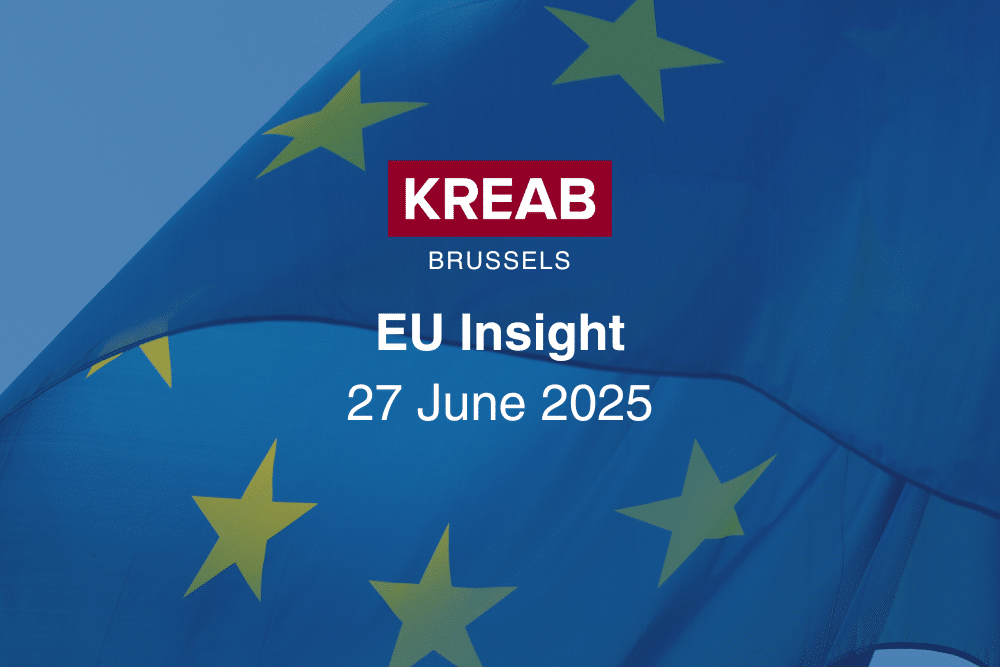
27/06/2025
EU Insight 27 June 2025
Brussels, 27 June 2025
EU LEADERS REAFFIRM POLICY LINES ON DEFENCE, UKRAINE AND MIDDLE EAST
Gathering in Brussels on 26 June, EU leaders discussed security and defence, Ukraine, the Middle East, and economic competitiveness, largely reaffirming existing common positions. The European Council backed closer cooperation and spending on defence, continued military and financial support for Ukraine, the extension of sanctions on Russia, and renewed calls for an immediate ceasefire and sustained humanitarian access in Gaza. While pressure remains to advance EU-US trade talks and consider stricter Russia sanctions, leaders stopped short of new commitments, reflecting divisions among Member States. The summit concluded with a call to continue diplomatic engagement and internal reforms to strengthen the EU’s resilience in an uncertain geopolitical landscape.
NATO ALLIES SET AMBITIOUS DEFENCE SPENDING GOAL AMID SECURITY PRESSURES
At their summit in The Hague, NATO leaders agreed to a significant raise in their collective defence spending goal, marking the alliance’s most significant increase since the Cold War. The new target is set at 5% of GDP in response to mounting security threats, well above the 2% benchmark set a decade ago. While most countries backed the new benchmark, including a 3.5% share for core defence capabilities, some, notably Spain and Slovakia, voiced reservations about feasibility. The alliance also reiterated its long-term support for Ukraine, with ongoing preparations for additional EU sanctions against Russia. The final summit statement focused on unity and deterrence, but stopped short of directly condemning Russia, reflecting internal divisions within the alliance.
COMMISSION UNVEILS SPACE ACT TO BOOST COMPETITIVENESS AND SAFETY
The Commission has put forward plans for an EU Space Act, marking the first attempt to establish common standards for the continent’s growing space sector. The Act aims to replace Europe’s patchwork of national regulations with harmonised rules focused on safety, resilience, and sustainability. Key measures include tighter tracking of space debris, enhanced cybersecurity for satellites, and reporting requirements to cut the industry’s environmental footprint. The initiative arrives as Europe faces increasing competition from international players and rising concerns over the safety and long-term viability of satellite operations. The draft legislation will now be considered by the Parliament and Council in the coming months.
CO-LEGISLATORS REACH AGREEMENT ON BANK CRISIS MANAGEMENT FRAMEWORK
In a step toward a more resilient banking system, the Council and European Parliament have reached an agreement to revamp the Crisis Management and Deposit Insurance (CMDI) framework. The reform seeks to better manage the failure of small and medium-sized banks by allowing resolution when it is in the public interest. Under the new rules, such banks could gain access to industry-funded safety nets, such as national resolution funds and the Single Resolution Fund. With strict safeguards and a clearer public interest assessment, the review aims to ensure depositors are protected without relying on taxpayer-funded bailouts. The agreement is another step toward advancing the banking union and a more predictable response to future bank crises.
COMMISSION ADOPTS NEW STATE AID RULES FOR CLEAN INDUSTRY
The Commission has adopted a new State aid framework to underpin Europe’s industrial transition to cleaner technologies. Known as the Clean Industrial State Aid Framework (CISAF), the scheme replaces the crisis-focused measures introduced in 2022 and will be in force until the end of 2030. The CISAF gives national governments more flexibility to subsidise clean energy, decarbonisation of industry, and the production of clean tech across the EU. The framework also allows for greater support in less-advantaged regions. Overall, the initiative is intended to simplify procedures, de-risk investments in large-scale green projects, and strengthen the bloc’s industrial competitiveness as the transition to net zero accelerates.
COMING UP NEXT WEEK
- Wednesday 2 July: College of Commissioners. On the agenda: Climate Law – 2040 target, EU quantum strategy and Life Science strategy.
- Friday 4 July: EU-Moldova Summit. On the agenda: EU’s political and financial support for Moldova.

Did you like this article? Contact us to hear more about Kreab Brussels’ practice and services.

